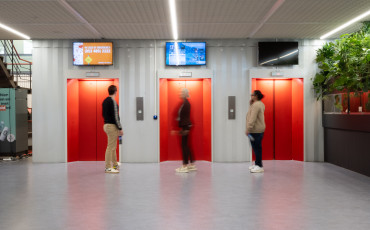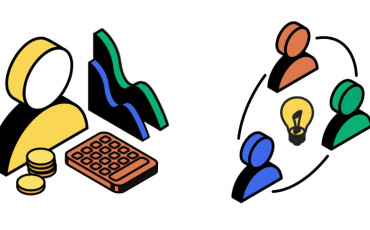In the midst of this whirlwind of information, the lecturer stands, flanked by those who want to support him or her: learning designers, coaches, educationalists. But what can be expected of that lecturer, and of those who support them? What is realistic, and does good support entail?
In recent weeks, calls for tempering expectations have become increasingly frequent. After all, a quick switch to online education, or better: remote education, would already be asking a lot under normal circumstances, but current circumstances are far from normal. Compulsory working from home, children at home, concerns about your own health and that of family and friends, it all affects the taxability, productivity, motivation and emotional balance of everyone in higher education. In addition to all technical and educational information on this ‘Vraagbaak’, it’s important to also be aware of this. Therefore, a selection of advice and reflections.

Don't expect miracles
In this Dutch blog, Wilfred Rubens discusses the article The Difference Between Emergency Remote Teaching and Online Learning by Charles Hodges, published on the EDUCAUSE website. The bottom line: as a result of the dizzying speed with which education now has to be organized online, it cannot be expected that its quality will remain the same or that the beneficial assets of (well-prepared and designed) online education can be optimally exploited. Improvisation and work(over)load cause stress for both teachers and support staff.
A few weeks ago, Willem van Valkenburg of TU Delft wrote a blog on the same topic: Ambiguous times for online education.
A marathon, not a sprint
Pedro de Bruyckere also issued the warning a few weeks ago (in Dutch): Beware, this will be a marathon, not a sprint. In other words: dose your efforts and avoid too much peak load. Do not expect the same quality as normal. But that is difficult, not only in education. The NOS headlined in early April: Steeds meer thuiswerkers zitten erdoorheen.
Recognition and acknowledgement
Especially when you work together and at the same time do not see each other, it is important that you recognize and acknowledge each other's efforts. Yes, attention to educational quality is also important now, and yes, that also applies to assessment. But that does not alter the fact that it is also nice if a colleague, manager or student expresses appreciation for what you have done. And vice versa. So also pay attention to that recognition, such as lecturers and students did back and forth on LinkedIn. Or as my own employer, Avans Hogeschool did, by sending a bunch of tulips with an encouraging note to all employees (examples from other institutions are more than welcome in the comments). What also helps: digital coffeedates, lunches and virtual office ‘drinks’ to see each other outside the formal moments. And a healthy, musical dose of encouragement on YouTube.
Ask yourself: when did you last compliment a colleague?
How do institutions organize support for lecturers?
Each institution provides support to lecturers, whether it be central or decentralized, pro-active or in response to questions, through training, through coaching, through a website, every institution has its own infrastructure. Do you want to know more about how other institutions handle this? Watch, listen and chat during the webinar that we organize (in Dutch) on this topic on Thursday 9 April.



0 Praat mee